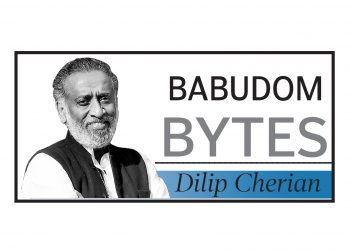In the recent turn of events in Manipur, it seems that the N Biren Singh government is rolling the dice with a high stakes move. It has appointed a retired Army colonel, Nectar Sanjenbam as the new Senior Superintendent of Police (SSP). While the situation in the state has been dire, it’s important to question the wisdom of this decision and its potential consequences in the long run.
Notably, the manner in which this appointment has been made raises eyebrows. The state government appears to have sidestepped due process, creating a new position without a clearly defined scope of duties. The argument put forth by the government is that Sanjenbam’s experience in combating insurgency makes him the ideal candidate to quell the unrest in the state. While his credentials as a military officer are impressive, it’s crucial to remember that policing and military operations are distinct domains, each with its own set of rules and ethics.
The move also raises concerns about the militarisation of law enforcement in Manipur. It is being seen as a bold move to tackle the ongoing violence, but it comes with inherent risks. Opting for a military-style solution might exacerbate tensions rather than resolve them. So even as it brings hope to some, the manner in which it has been executed raises valid concerns.
Top J&K officials accused of discrimination
A senior AGMUT cadre officer Ashok Kumar Parmar has filed a complaint with the National Commission for Scheduled Castes (NCSC) against J&K Lt Governor Manoj Sinha and Chief Secretary Arun Kumar Mehta, accusing them of harassment and humiliation. Parmar, who had earlier exposed irregularities in the implementation of the Jal Jeewan Mission in Jammu & Kashmir, believes that his frequent transfers and “mistreatment” are a direct result of his role in exposing the Jal Shakti Department’s mismanagement of the project.
In his complaint, Parmar, who is currently the Chairman of the Bureau of Public Enterprises, has reportedly highlighted an incident in which Lt Gov Sinha allegedly barred him from attending a meeting in June, in the presence of other administrative secretaries. He also claimed in July, Chief Secretary Mehta “humiliated” him in a meeting of the Committee of Secretaries, which resulted in his removal from the meeting.
It’s rare for an officer to directly accuse two very senior functionaries of the state, so there is heightened interest in the outcome of Parmar’s complaint. Notably, how the issue ends will depend on various factors, including the credibility of the officer’s claims, the response of the authorities, the level of public attention it garners, and the prevailing legal and administrative mechanisms in place to deal with such issues.
However, as we’ve noted in earlier instances of whistleblowers in India, they don’t always achieve their aim of ensuring transparency and accountability in the government. In fact, the consequences are often negative. This is why this case is being followed keenly in J&K.
Bureaucratic tumult or strategic move?
While political pundits are futilely grasping for explanations, at DKB we are contemplating whether the late-night announcement of a massive secretary reshuffle might signify the government’s preparations for an extensive administrative push, aimed at achieving a successful last-mile delivery.
This overhaul included fresh appointments, lateral shifts and in-situ elevations of more than two dozen senior IAS officers, leaving observers scratching their heads. This unusual development comes in the backdrop of the upcoming G20 Summit preparations and speculation surrounding the Special Session of Parliament and historic bills like “One Nation, One Election,” among others.
Among some notable changes, S. Krishnan is the new Secretary of the Ministry of Electronics and Information Technology, V.L. Kantha Rao is the new Secretary of the Ministry of Mines, Chanchal Kumar has been laterally shifted to the Ministry of Development of North Eastern Region, while Sriram Taranikanti has been appointed the new Director of the Lal Bahadur Shastri National Academy of Administration, Mussoorie.
In addition to these changes, three senior IAS officers, including Rajendra Kumar, Rakesh Ranjan and Neelam Shammi Rao, have been elevated in-situ to the rank and pay of Secretary as a personal measure, temporarily upgrading the posts they hold.
This reshuffle underscores the intricate dynamics of governance in New Delhi and leaves us pondering the implications for the nation’s future policy direction, so close to the general elections.
Share a babu experience! Follow dilipthecherian@twitter.com. Let’s multiply the effect






































